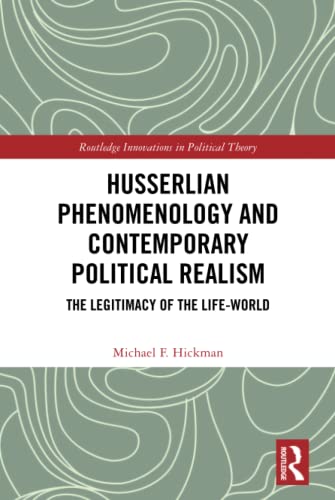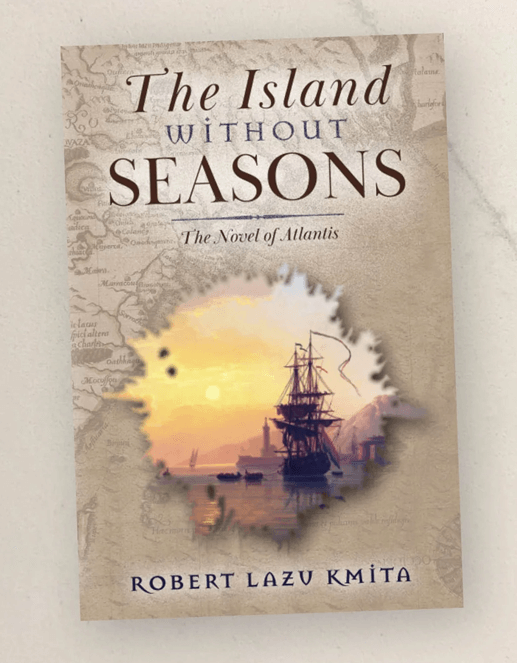The Politics of Edmund Husserl

Charles de Gaulle once famously proclaimed that he “always had a certain idea of France.” On a recent trip to that enchanting country, I had the chance to catch a glimpse of a different “idea of France” through the eyes of my young daughter. Upon boarding a train from Avignon to Paris, she repeatedly expressed her farewells to France. When I explained to her that we were not leaving France, that we were only heading to Paris, which is a part of France, she seemed rather confused. When we arrived at our hotel, we shared a moment or two looking out the window onto the street below, taking in the feel of the city. While taking it all in, she suddenly said, “there is Paris,” pointing at the apartment building across the street. I replied that everything she saw was Paris, the whole city around us. Later, she announced “we are not in France; we are in Paris.” Upon being informed that we were in fact still in France, that both Avignon and Paris and all the people in these places made up France, she seemed yet more confused.
Aside from the intrinsic delight of getting a sense of how a two-year-old engages the world we so often take for granted, the experience led me to some further reflection. What exactly is it that constitutes a country or a nation? It is obviously more than the place or the buildings or even the institutions. It seems obvious that it somehow involves the people who are participating in something that transcends themselves, becoming more than just an aggregate of individuals. But what, exactly? The political experience of many Western democracies over the past decade or so suggests that this is not an uncontested realm of inquiry. If the political communities of America and the West really are “coming apart,” as a number of American and British authors have written, it becomes necessary to ask: what does it mean to be a country? What constitutes the political “we”? Only by knowing what a political community properly speaking is can we hope to go some way in repairing the ones we inhabit.
Philosophically speaking, this is a distinctly modern problem. For social contract thinkers like Locke, Hobbes, and Rosseau, man already exists in a pre-political “state of nature,” complete with his own preexisting notion of his ends, and it is incumbent on the city to provide these. It is only after choosing to enter a political covenant that the person is said to become constituted politically and socially. This is a radical rethinking of the generally shared notion of ancient and medieval thinkers that the community is prior to the individual person. The implications here are vast, but the point for present purposes is simply to highlight the attendant difficulties such a view creates, particularly when it comes to identifying the nature of what constitutes the political “we.”
Liberal theory continues to cling to this notion insofar as it asserts that society should be understood as an aggregate of autonomous individuals prior to the political realities they inhabit. A vast number of “postliberal” critiques have called this central presupposition into question. But rare is the contemporary critique of liberalism that displays the subtle philosophical insight of Michael Hickman’s new book, Husserlian Phenomenology and Contemporary Political Realism. Novel in conception and refreshingly unique in its conclusions, the book applies certain of the philosophical categories from Edmund Husserl’s phenomenology to the problem of the political community, its authority and legitimacy. Although the book is ostensibly a critique of political realists like Matt Sleat and Bernard Williams, it becomes evident as the reader nears the end that the book carries much broader implications.
Hickman begins by situating himself vis-à-vis the work of “ideal” liberals, most conspicuously John Rawls, and “realists” like Matt Sleat and Bernard Williams. Hickman finds each approach lacking; he rejects ideal liberalism outright and attempts to offer a modification of realist theory throughout the rest of the book. In short, he supports the realist critique of ideal liberalism, but finds that it is unable to give a satisfying account of legitimacy. If simple agreement cannot be the source of legitimacy (as the realists say), then what is?
The analysis begins in earnest with an exploration of Husserl’s notion of the “life-world” (Lebenswelt). In a word, it is a pregiven world of meaning which each human subject inhabits. Husserl himself describes it as a “thickly experienced context of embodied human acting and knowing that is not completely surveyable, not fully objectifiable, and which has an inescapable ‘intersubjective’ and ‘intertwined’ character.” The life-world is the “horizon,” surrounded by a “halo of emptiness,” outside of which things can be said to exist in some sense, though not yet for the subject. It is the primordial horizon out of which reason itself emerges. But at the same time, it is intersubjective, an “accomplishment of a number of individual subjects in a community of passive and active cooperation.” This intersubjectivity is the source of “objectivity” within the community which it constitutes. It is also the source of the “substance” of the life world, the “normality and tradition” which constitute the source of the meaning of objects, symbols, and experiences in our everyday lives. Its structure (not the particulars of its substance, which are always concretely in situ) is a universal given of human experience.
It is essential to recognize that the life-world operates on different levels. In fact, Hickman’s key contribution might be described as differentiating and describing the various levels on which the life-world operates. There is the “Objective” world of “Nature” which every human being inhabits, and which is never exhaustive, relying on the life-world just described and having its own form of “objectivity.” In addition, there is also an intersubjectivity between political communities. Thus, there is an intersubjectivity happening between the persons who make up a political community with its own world, and one between other political communities existing in the universal Objective world of Nature. In other words, there is a “community of transcendental egos” among political communities.
But one might be wondering: does another community exist if it is in no way part of the horizon of my community? Hickman spills a lot of ink addressing these concerns. In fact, given that each community is, in a sense, its own transcendental ego opens up the possibility of something like an interpersonal event in an almost Levinasian sense. The other transcendental ego opens up the infinity of possibility, yet is also the moment of the fullness of personality for both parties involved. I am myself more fully whenever I open myself up to the other. This hints at the core of Hickman’s critique of liberalism more broadly: given its abstract notion of legitimacy stemming from rational assent to “a system of fair cooperation” ideal liberalism necessarily “denies the political community any real existence” and, in the end “leads to a worldless conception of politics.”
This leads us to the crucial jump of Hickman’s argument: that “the political community and the life-world are coterminous.” Of course, there are many objections that could be raised here. Many have argued that when the political comes to represent the whole of our existence, when nothing is theoretically outside the political, we begin to see political problems more as personal and existential issues. If everything is political, then everything could theoretically be approached in the same way we approach political problems, a thought which likely send many a shudder to those of us who need to take a break from cable news or our Twitter feeds several times a year.
However, it seems that a more plausible interpretation of Hickman’s thesis is that having a political community means first and foremost that we have a shared notion of the whole. This notion only emerges from the experience of the person, which is why the phenomenological approach is so useful here. Further, this conception is already unfolding in time: we do not sit down and decide what our conception will be. The conception unfolds based on what has come before, and it unfolds throughout the life of the person and his or her community. Then it is passed on to the next generation. If it is the case that we must always operate within a notion of the whole, the worldless politics of the liberals is deeply problematic. The political aspects of being rely on an intersubjective reality, one which incorporates all aspects of human experience—including that which stands beyond our finitude.
Of course, there is much more to Hickman’s analysis, including memorable passages on Carl Schmitt, human rights, as well as a bevy of helpful thought experiments (applying what Hickman calls the “political quasi-epoche). There is also much theoretical superstructure that cannot be covered here for the sake of brevity. But suffice it to say that Hickman’s work will be a welcome contribution to the conversation on liberalism. Neither polemical nor burdened with scholarly irrelevancies, it is exactly the kind of discussion political philosophers ought to be having.




